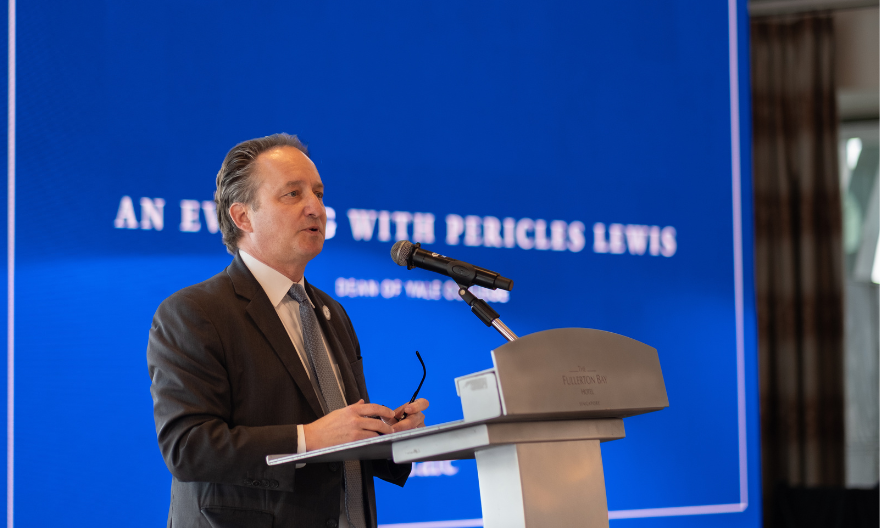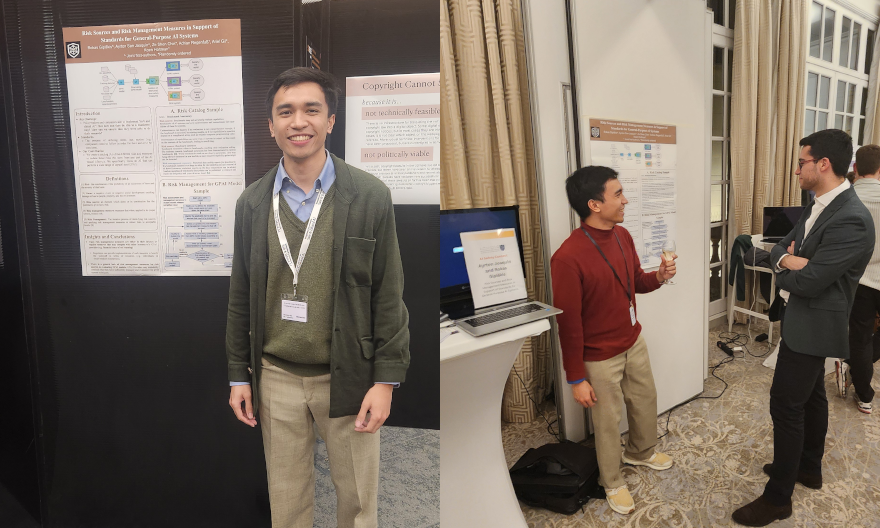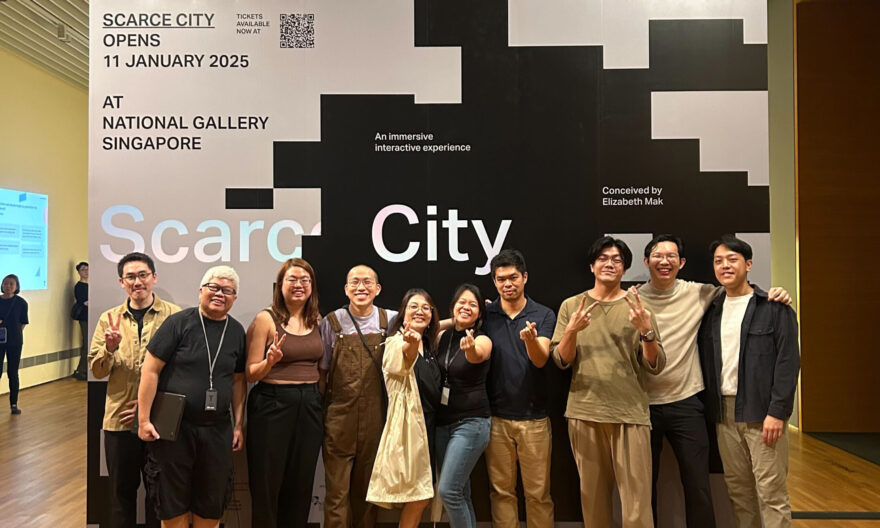Yale-NUS alumni working in the Supreme Court of Singapore
Alumni appointed as Justices' Law Clerks in two-year legal training programme
The Justices’ Law Clerk (JLC) programme is a prestigious, once-in-a-lifetime opportunity to work closely with the Chief Justice and other judges of the Supreme Court of Singapore. It is a rigorous, two-year programme in which fresh graduates are trained by some of the best legal minds in Singapore and is offered to only a small number of graduates each year. While selection for this programme is competitive, two of our alumni, Chong Ren Jie (Class of 2020) and Jasmine Goh (Class of 2021) were chosen right after graduation.
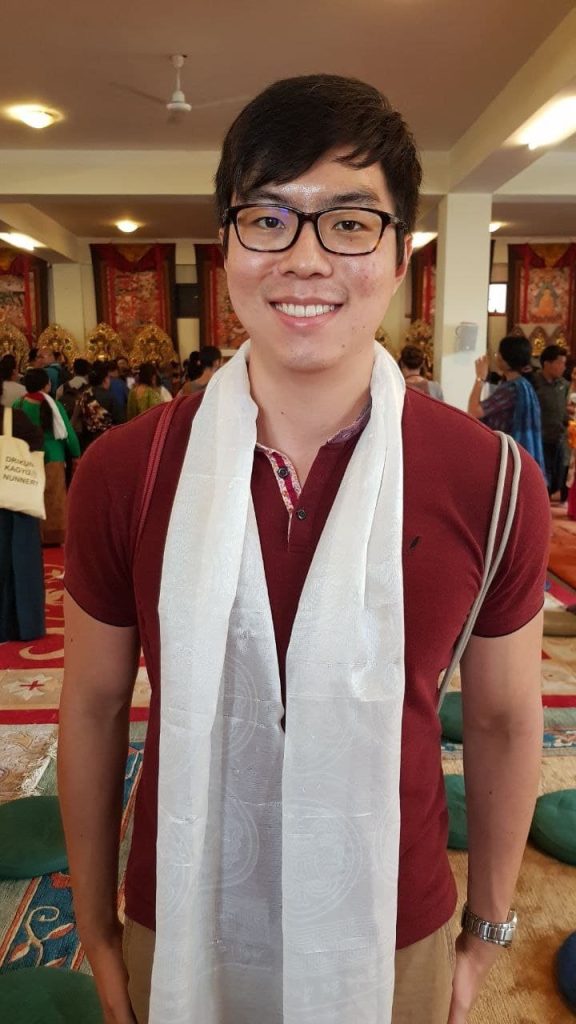 Ren Jie (Class of 2020) at Kathmandu, Nepal where he studied Sanskrit at the Rangjung Yeshe Institute on a Summer Language Scholarship. Image provided by Ren Jie.
Ren Jie (Class of 2020) at Kathmandu, Nepal where he studied Sanskrit at the Rangjung Yeshe Institute on a Summer Language Scholarship. Image provided by Ren Jie.
Ren Jie was the first alumnus from the Double Degree Programme (DDP) in Law and Liberal Arts to be selected as a JLC. He began his stint in December 2020 and provides research assistance to the judges in a wide range of matters. “The highlights of my experience are the opportunities to assist with matters that concern novel areas of law,” he said.
Looking back at his time at Yale-NUS College, he shared that his experiences at Yale-NUS have given him one thing: perspective. As a Philosophy minor, he explored a multitude of philosophical traditions via the Common Curriculum and his elective classes, ranging from Mathematical Logic to Eastern Philosophy such as Chinese Philosophy and Indian Buddhist Philosophy. “I discovered that, at risk of oversimplification, philosophy and law are alike and different in very fascinating ways. They run up to the limits of natural language very quickly, but resolve this difficulty in their own unique manner,” he said. “With this perspective, I could better appreciate the nature of legal thought.” It was with such insight that he explored the nature of wilful blindness — a legal doctrine in Singapore — in his Capstone Project, using approaches to mental states and culpability from both jurisprudence and contemporary analytic philosophy.
During his first year at College, he joined the Military Justice Project (MJP) at the National University of Singapore’s Faculty of Law. He later took over the project’s reins, which became his sole extracurricular focus. Speaking from his experience as an Investigation Officer during his National Service, he said, “the MJP aims to educate the public about the military justice system and to come up with helpful initiatives to assist the key players in it. Having been part of this system during my time in National Service, I felt that it was a cause that I greatly identified with.”
The interdisciplinary nature of the DDP was something that he found great value in. “To me, the greatest benefit of the DDP is the opportunity for one to learn a chosen niche intersection of law and another subject,” he said. Restating advice from one of his professors, “it is easier to distinguish oneself by specialising in a niche intersection of fields as opposed to excelling in just one,” he shared.
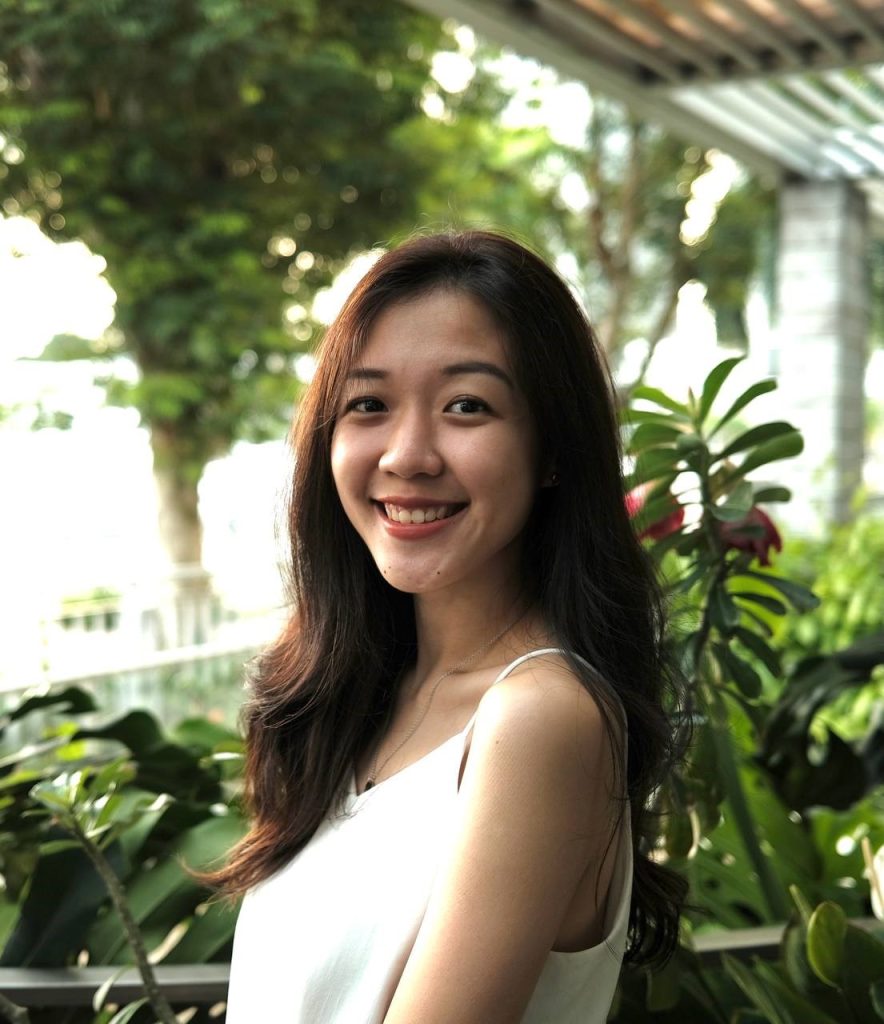 Jasmine Goh (Class of 2021). Image provided by Jasmine.
Jasmine Goh (Class of 2021). Image provided by Jasmine.
Having recently begun her appointment as a JLC in January 2022, Jasmine has been enjoying the opportunity to hone her legal and writing skills. “To be able to contribute to the development of the law in Singapore is a true privilege,” she shared.
Throughout her time at the College, her diverse resume of activities included attending a Yale Summer Session in Paris on Law and Economics, working as a Research Assistant for Head of Studies (Double Degree Programme in Law and Liberal Arts) and Associate Professor of Social Sciences (Socio-legal Studies, Law & Society) Lynette Chua on her study of governmental public health strategies, and organising the Arts & Humanities Capstone Festival. “My experiences as Yale-NUS have given me a diversity of perspectives and honed my critical thinking skills, allowing me to approach the law through different lenses,” she said.
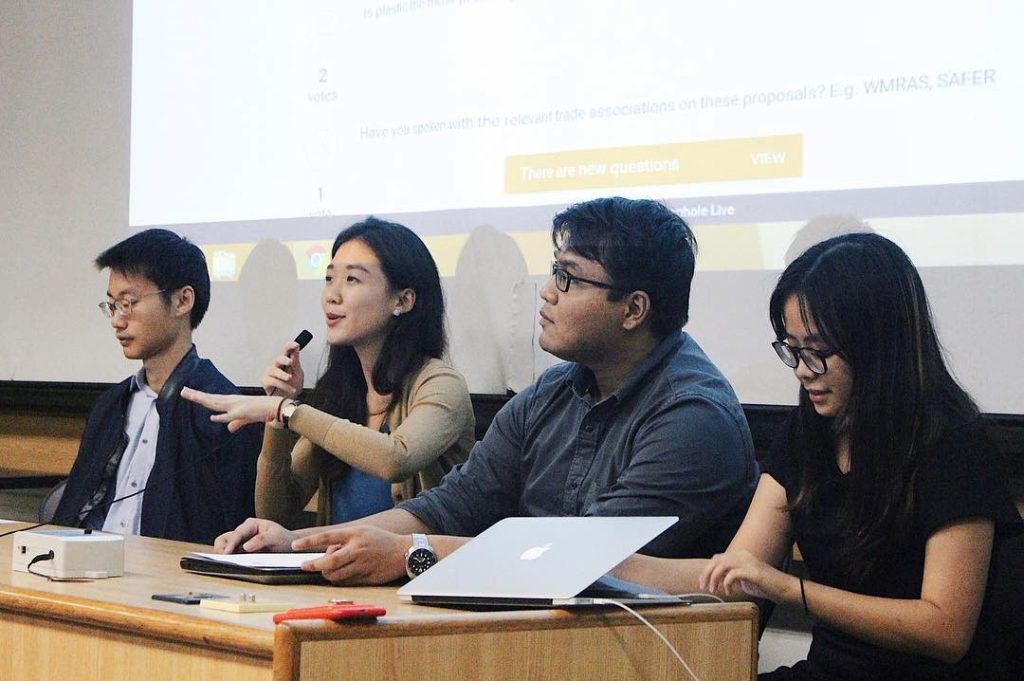 Jasmine (second from left) presenting a research paper on marine plastics pollution with the Environmental Law Students’ Association Legislation Project team in 2018. Image provided by Jasmine.
Jasmine (second from left) presenting a research paper on marine plastics pollution with the Environmental Law Students’ Association Legislation Project team in 2018. Image provided by Jasmine.
She greatly appreciates the interdisciplinary nature of her education, constantly finding ways to relate her study of law to other disciplines. “In my capstone project, I used Urban Studies and Property Law concepts to examine the legal challenges of conserving strata-titled modernist built heritage in Singapore,” she said. Offering another example, the Arts & Humanities minor added, “As a creative writer, the attentiveness and sensitivity to language have also been transferable to sharpening my legal writing and analysis skills”.
On a final note, she stressed the importance of maintaining personal well-being for students who might be pursuing a similar path. “Law school is not easy, so it is important to keep your head on your shoulders,” she explained. “Make time for the people who matter to you, be intentional with getting rest and keep doing the things which give you purpose and meaning,” she added.
Note: The views, information or opinions expressed in this story are solely those of the individuals involved and do not represent those of the Supreme Court of Singapore and its employees.

